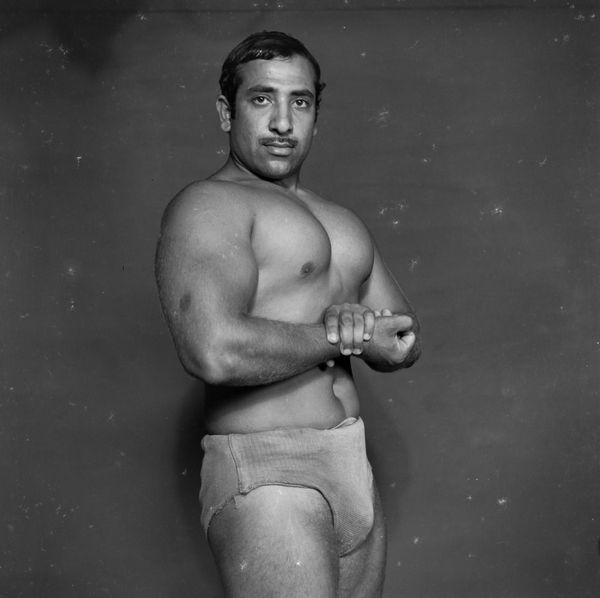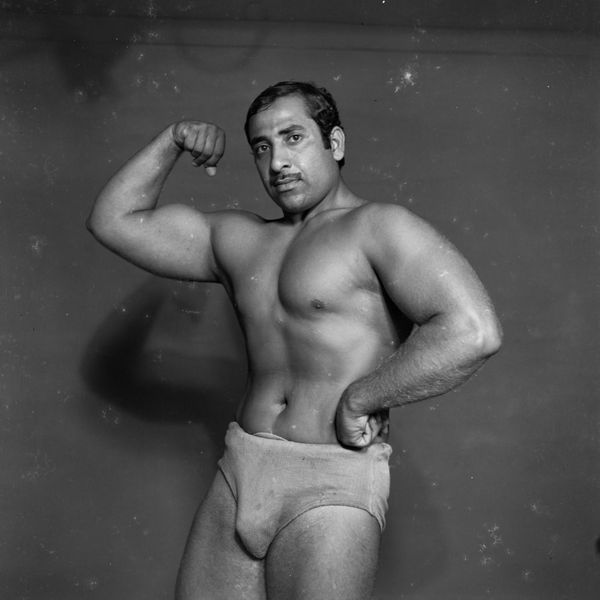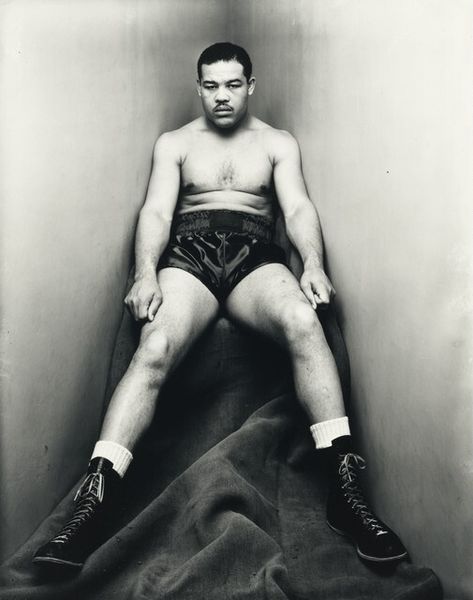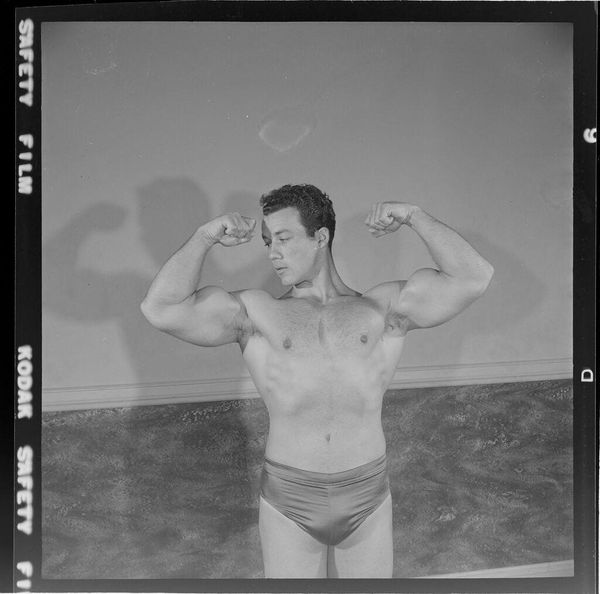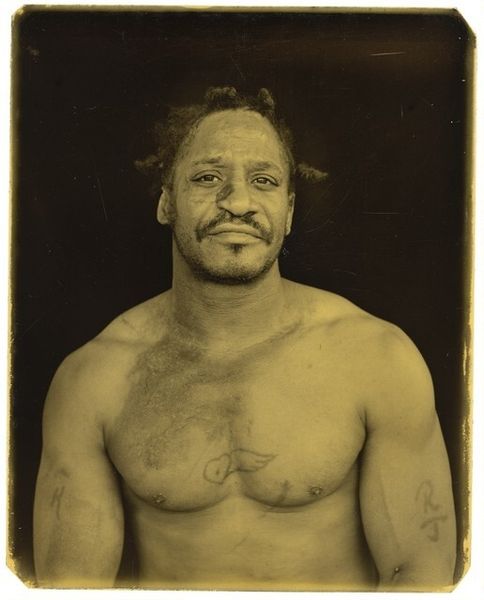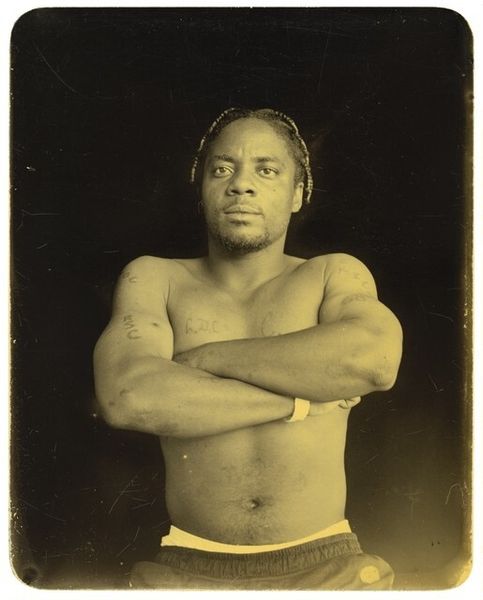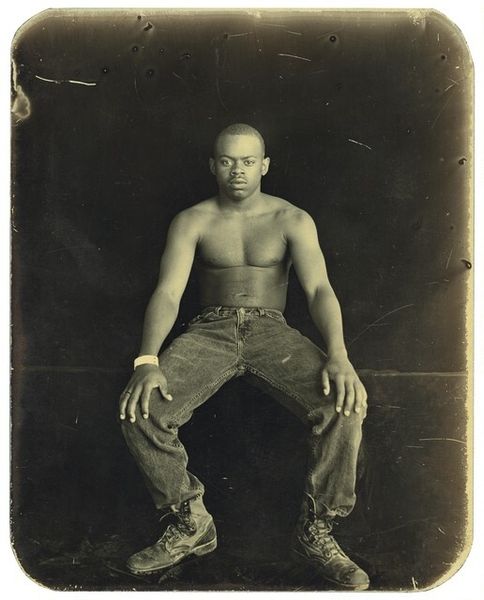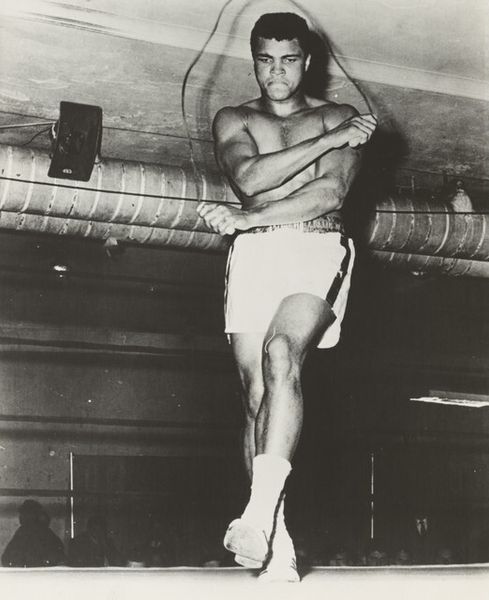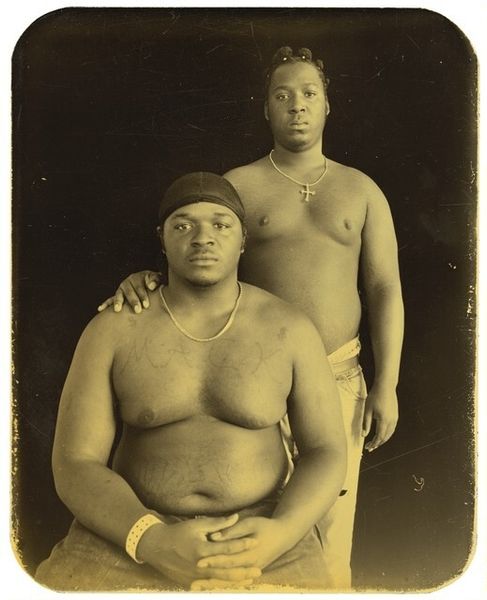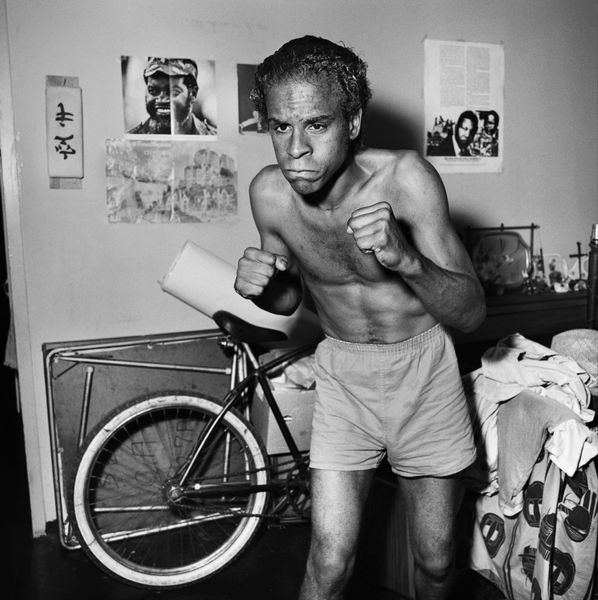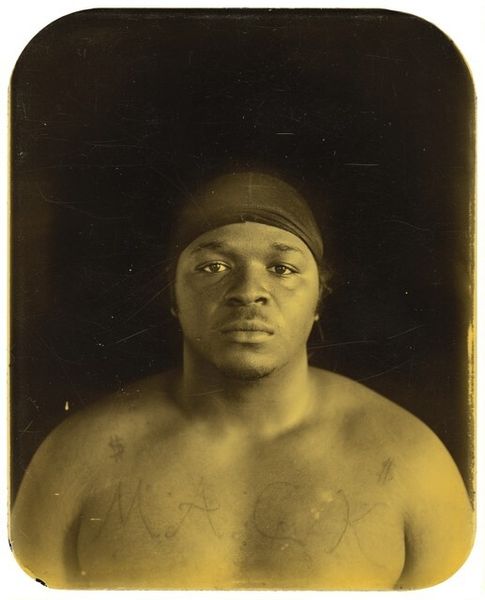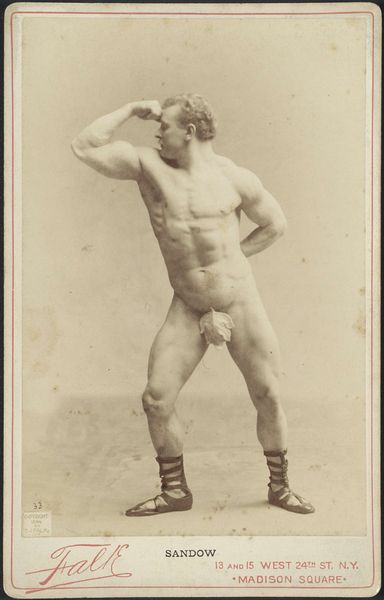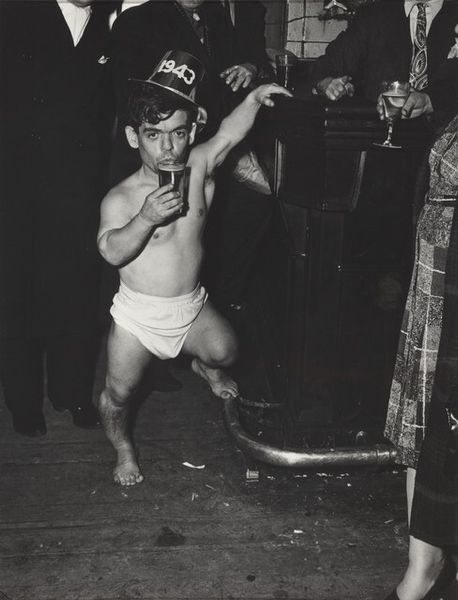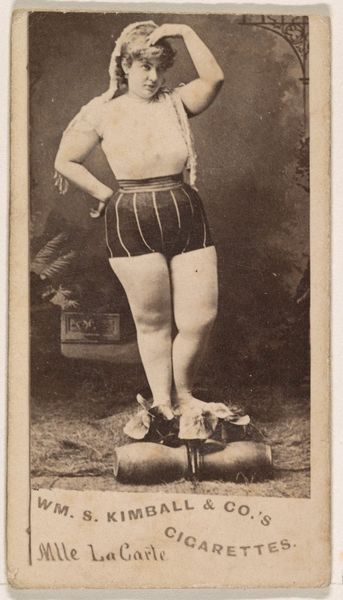
Dimensions: image: 291 x 292 mm
Copyright: © Akram Zaatari, courtesy Hashem el Madani and Arab Image Foundation, Beirut | CC-BY-NC-ND 4.0 DEED, Photo: Tate
Curator: This photograph, "Reesh. Studio Shehrazade, Saida, Lebanon, late 1960s," was captured by Hashem el Madani, though it is now credited to Akram Zaatari. Editor: My first thought is the vulnerability of this figure, despite his imposing physique. The monochrome palette amplifies that. Curator: Well, these studio portraits were central to constructing a public image in Lebanon. The studio acted as a social stage for presenting oneself. How do we interpret that performance? Editor: It highlights the tensions between constructed masculinity and lived experience, right? Consider the politics of the body, the male gaze, and postcolonial identity all at play here. Curator: Indeed. Madani's work reflects the cultural aspirations of his time. It's a fascinating window into the social fabric of Lebanon. Editor: Absolutely. It makes me consider how this image, preserved and re-contextualized, speaks to our contemporary moment as well.
Comments
tate 9 months ago
⋮
http://www.tate.org.uk/art/artworks/zaatari-reesh-studio-shehrazade-saida-lebanon-late-1960s-hashem-el-madani-p79467
Join the conversation
Join millions of artists and users on Artera today and experience the ultimate creative platform.
tate 9 months ago
⋮
“Men in general used to like showing their muscles. This man’s nephew, is the now-famous Lebanese singer Fadel Shaker.” Gallery label, June 2011
